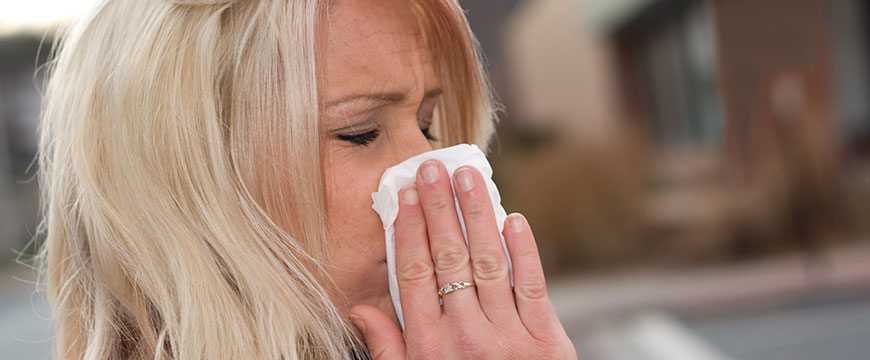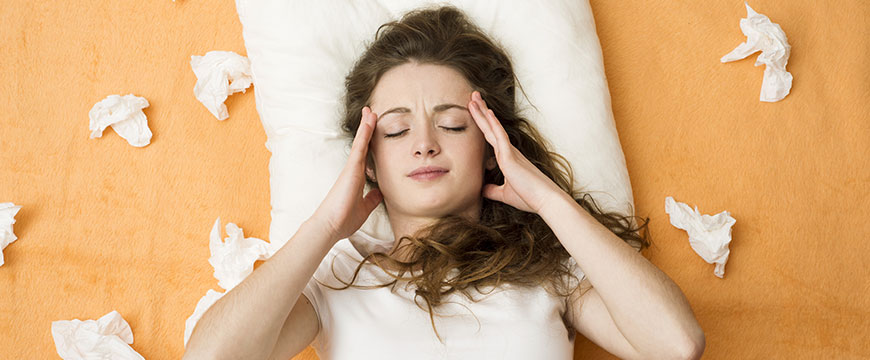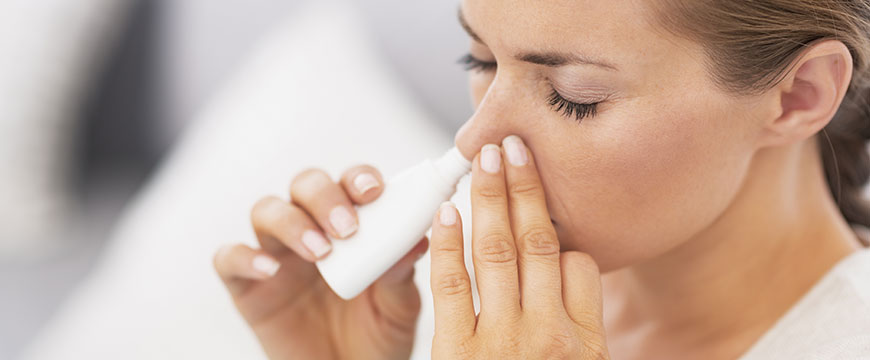
According to the Centers for Disease Control and Prevention, up to 60 million people in the United States may experience allergic rhinitis symptoms yearly.
These symptoms, including sneezing, runny nose, and congestion, are triggered by your body’s reactivity to an allergen that it interprets as a threat.
Pollen, which plants release into the air as part of their reproductive cycle, is frequently the cause of seasonal allergies.
The kinds of pollen present, and how much, depend on where you reside.
In addition to irritating the nose, pollen can irritate the eyes and other areas.
According to the CDC, seven out of ten patients with nasal allergy symptoms (allergic rhinitis) will also have itchy, red, or watery eyes.
Are you concerned about winter allergies, and what you can do to limit your exposure this season? Here are a few ideas given by allergy specialist doctor to get you started:
Keep the humidity low.
Dust mites are microscopic pests that dwell in household dust and feed on dead skin and dander generated by humans and animals.
They typically reside in mattresses, drapes, furniture, carpet, and bedding. They thrive in humid environments. So, if you want to use humidifiers in the winter, keep the humidity at or below 50%.
You should even consider a dehumidifier if your home tends to retain moisture during the winter.
Pay attention to your bedroom.
Because many people spend so many hours a day in the bedroom. The American Academy of Allergy, Asthma, and Immunology recommends paying particular attention to removing allergens commonly present in that section of the house.
This involves washing sheets and bedding in warm water once a week and using zippered dust mite coverings on pillows and mattresses.
The National Institute of Environmental Health Services also suggests replacing wool or feather-filled bedding with synthetic fabrics and washing stuffed animals for children.
Be on the lookout for mold.
Consider opening a window or increasing airflow if mold frequently grows in wet areas of the house such as a bathroom.
Remove mold from hard surfaces using soap and water and allow the area to dry thoroughly. Also, as the holidays approach, look at the Christmas trees for mold if someone’s allergy symptoms occur after decorating the tree.
Watch out for allergy signs.
When you think of seasonal allergies, you probably think of sneezing, wheezing, and watery eyes. If you have any of the following symptoms, you most likely have seasonal allergies:
- Sneezing frequently
- Itchy or watery eyes
- Nasal congestion
- Nasal, ear, or chest congestion
- Postnasal dripping
- Throat itch
- Eyelid puffiness
The symptoms listed above are pretty standard. However, your allergies may manifest differently. Seasonal allergies could also cause these less common symptoms:
- Wheezing
- Coughing
- Unexpected loss of exercise endurance
- A little headache
To be comfortable during the season, you must keep a close eye on the symptoms and take the necessary steps as soon as possible to curb them.
Reducing exposure to allergens will help. And some of the things you can do to achieve this include:
- When symptoms show up, keep your windows closed.
- If you are allergic to indoor allergens, use an air purifier.
- When conducting yard chores, wear a dust mask.
- Pollen forecasts can be found on your local weather network, so look at them.
- Shower and wash your hair at the end of each day to remove pollen from your clothes, hair, and skin.
As much as reducing exposure is beneficial, it is unlikely to eliminate symptoms. So, stock up on everything from nasal sprays and decongestants to tissues for the expected runny noses and itchy eyes.
Stay moisturized
If you suffer from eczema or dry skin, continue bathing every day during the winter. You also should pat dry and moisturize shortly after stepping out of a bath or shower (within two to three minutes).
The more moisturizing you do, the better. So, keep reapplying creams several times a day.
Work on getting rid of dust.
You should avoid using fans in the winter and keep surfaces clean. Also, when dusting, use a wet towel to minimize stirring up dust mites, or wear a face mask if the area is dusty.
The fewer surfaces dust can gather, the better, so you should eliminate anything you don’t use. If you visit many homes, you will find rarely used tables and other pieces of furniture. You should get rid of these.
Make use of an air purifier. Of course, you don’t want dust in the air. Therefore, an air purifier in the home can be handy.
As much as you should protect yourself when dusting your house, it’s a good idea to wait at least a couple of hours before returning to the room after vacuuming or dusting.
Invest in knowledge
If you or your children are suffering from allergies this winter, consider seeing an allergist and immunologist in your area who can help identify the illness and, if necessary, recommend a treatment plan.
When hiring an allergist, take your time and ensure you are hiring the best.
Like when hiring any other professional, you take your time to vet them, right? You should do the same with an allergy doctor. An excellent way to go about it is to set an appointment.
How easy is it to get hold of the professional? You should be cautious of this. You want to work with a professional who is easy to find. If you don’t want your condition to flare up, and you can’t get hold of the allergy specialist Germantown.
If you suffer from any form of allergies, you can expect to see the allergy specialist several times. You don’t want to interact with someone with a horrible personality, do you? To ensure this doesn’t happen, ensure that the allergist you are working with is pleasant to be with and they are knowledgeable in the area.
Besides getting information from the allergy professional, there are plenty of other places to get information about your condition. You can watch videos, read blogs and articles, and so on. You only need to ensure that an expert is making the information you consume.







